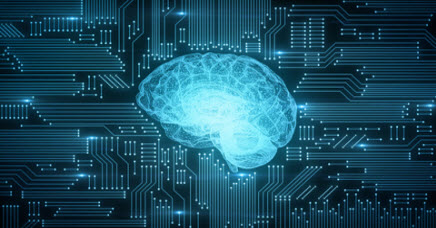Ethical AI for Mutual Benefit
 More companies are adopting artificial intelligence (AI ) to stay relevant and compete more effectively. In the past couple of years alone, discussion about ethical AI has been brought to the forefront due to the Cambridge Analytica/Facebook scandal and a prevailing fear that AI is going to automate workers out of jobs. Ethical AI needs to balance the potential benefits and risks of intelligent systems because a focus only on the benefits overlooks prudent risk management while focusing only on the risks can result in the unnecessary avoidance of the technology.
More companies are adopting artificial intelligence (AI ) to stay relevant and compete more effectively. In the past couple of years alone, discussion about ethical AI has been brought to the forefront due to the Cambridge Analytica/Facebook scandal and a prevailing fear that AI is going to automate workers out of jobs. Ethical AI needs to balance the potential benefits and risks of intelligent systems because a focus only on the benefits overlooks prudent risk management while focusing only on the risks can result in the unnecessary avoidance of the technology.
Mutual benefit should be central to ethical AI discussions. While responsible businesses already consider what’s good for their customers and good for the company’s bottom line simultaneously, ethical AI can also benefit employees, supply chains and even society. In fact, there are many benefits to AI that organizations can use to their advantage, particularly if they approach AI use from an ethical standpoint.
Realizing Ethical AI Benefits in Vertical Industries
Before AI became mainstream, humans were tasked with analyzing everything. They had to identify problems and solutions, figure out how to best optimize processes and detect when a situation had gone awry.
For example, credit card companies and banks used large numbers of analysts to detect fraud. They watched transactions day in and day out, looking for outliers. Unfortunately, the analysts couldn’t prevent fraud, they could only identify it after the fact. AI can detect anomalies so quickly that many fraudulent transactions are blocked before they can occur, which is of great benefit to banks, credit card companies and their customers.
AI is similarly beneficial in other scenarios, such as determining whether an individual applying for state or federal benefits is eligible to receive them. In this scenario, AI can detect whether applicants are who they claim to be or imposters, which is of great importance to government entities and taxpayers.
AI also enables universal credit. Historically, creditworthiness has been determined on the basis of credit history which disenfranchises some classes of consumers, including immigrants and citizens in developing nations. By examining alternative indicators, such as cell phone account ownership, those who lack credit because they are not in the US banking system may get access to credit.
In the healthcare industry, “orphan diseases, ”which are diseases that affect a small percentage of the population, have been a problem. Orphan diseases are sometimes so rare that pharmaceutical companies decline to develop some drugs to treat them because the research and development (R&) cost would exceed their return on investment (ROI). By implementing AI, pharmaceutical companies can produce drugs to treat people with orphan diseases while using fewer researchers, which in turn lowers R&D costs and makes the treatment of orphan diseases more viable.
AI also enables the realization of “precision medicine” ¾ where the treatment of and drugs prescribed to patients is tailored to individual need. For example, not everyone has the same DNA, lives in the same environment or has the same lifestyles and habits. Unlike humans, AI can consider a massive number of factors simultaneously. It can also reduce the number of misdiagnoses which can lead to incorrect treatment of patients.
General Business Benefits
Successful businesses are customer-focused. They understand who their customers are and make a point of satisfying the needs of those customers. Digital disruptors use micro-segmentation to increase marketing ROI and improve customer experiences, for example, by reducing the number of unwanted offers a customer receives. Established business are now following suit because traditional customer demographics and models can be too imprecise. Moreover, today’s consumers are less loyal to brands and more loyal to customer experiences. Accurate target marketing improves the experience of the customers that the business wants to serve.
Accurate target marketing also requires companies to understand what customers are likely to purchase. Traditionally, businesses used purchase histories, but with the help of AI, they can now predict with greater accuracy what customers will buy and when they will likely buy it. In a lot of cases, that information is fed into a recommendation engine that’s part of an ecommerce site, similar to Amazon.com. The recommendation engine improves individual product sales as well as cross-selling and upselling effectiveness. Customers like recommendation engines because they allow them to spend less time searching and navigating ecommerce sites looking for complementary products.
While marketing departments are improving customer attraction and retention rates, HR departments are improving their recruiting and employee retention efforts, also with the help of AI. Some employees leave their positions prematurely because they weren’t the right cultural fit for the company. Global consulting firm Comrise addressed this problem with its RightFit candidate prioritization application which was built on the HPCC Systems open-source Big Data platform. The application enables HR departments and recruiters to prioritize candidates more effectively by considering more factors including the cultures of current and previous employers. Consequently, new hires are finding themselves in positions that better align with their cultural preferences and career goals.
This article originally appeared on MoneyInc.com on June 28, 2019.
